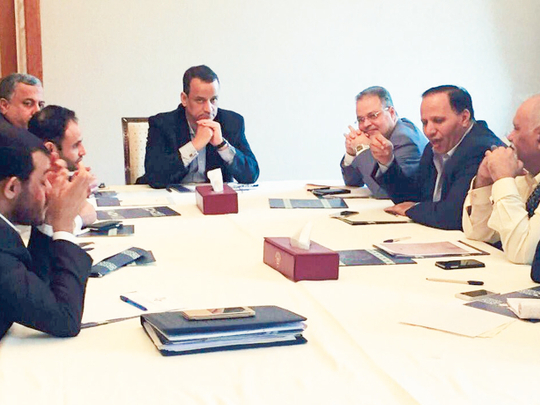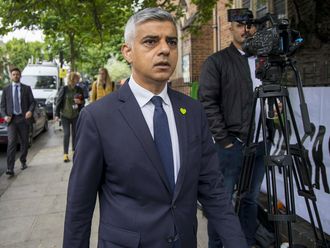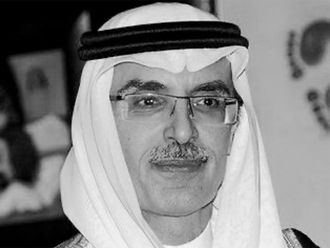
Kuwait City: Yemen’s warring parties have discussed forming military and security committees to oversee a transition period aimed at ending 14 months of fighting, the UN special envoy said on Wednesday.
“Discussions continued on security and military issues, including the details of military and security committees,” Esmail Ould Shaikh Ahmad said in a statement early Wednesday.
Peace talks in Kuwait between Iran-backed rebels and the government of President Abd Rabbo Mansour Hadi have completed their eighth week without any major breakthrough other than the release of some prisoners.
Al Houthi rebels have announced the release of 187 prisoners and Saudi Arabia, which backs Hadi’s administration, said last week it freed 52 children.
The UN envoy had tried to push the two sides to release half of all their prisoners before Ramadan, which began on June 6.
“I urge the parties to continue release of detainees, all detainees, particularly vulnerable groups and political prisoners,” he said on Twitter.
The main sticking point in talks remains the form of the government that would oversee a transition back to normality once a peace deal is reached.
The rebels and their allies have held out against demands contained in a UN Security Council resolution for their surrender of heavy weaponry and withdrawal from areas, including the capital, which they seized in September 2014.
The head of the Al Houthi delegation Mohammad Abdul Salam told Yemeni media late Tuesday that they would reject any deal that does not include their input on the make-up of the transitional body.
“Any deal that does not meet our demands of forming a consensual authority ... will be rejected,” Abdul Salam said.
This should include Al Houthi agreement on the president, the national unity government and military and security committees, he said.
The government has resisted proposals for a unity administration with the rebels, fearing it would undermine the international legitimacy of Hadi.
Yemen’s war has left some 6,400 people dead, with more than 80 per cent of the population in desperate need of humanitarian aid, according to the UN.












